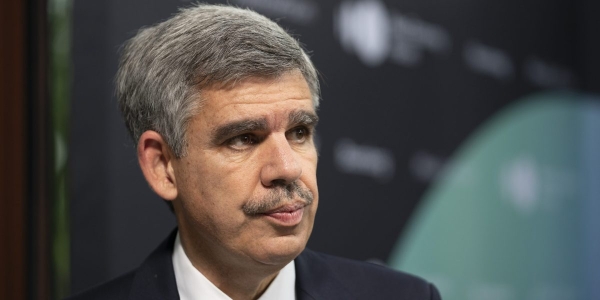
First Republic Bank remains in crisis mode this week, despite coordinated efforts by large banks to stabilize its finances and the federal government’s guarantee of deposits in two failed banks earlier this month.
San Francisco-based First Republic continued to teeter on the edge Monday, with its shares falling more than 47%, briefly hitting an all-time low shortly before the market closed, and trading halted numerous times throughout the day. First Republic’s stock has tumbled 90% over the past month, with almost all of the losses occurring since March 8, the day Silicon Valley Bank announced stock sale plans and sparked what would turn into a $42 billion bank run and a subsequent seizure by federal regulators.
But despite sweeping government measures to reassure bank depositors that their money is safe, small and regional banks are still uneasy, with First Republic at the highest risk of another lethal run. Its customers have withdrawn around $70 billion in deposits since SVB’s collapse, or nearly 40% of its total holdings, the Wall Street Journal reported Sunday, citing people familiar with the matter.
Withdrawals slowed somewhat last week after a consortium of 11 banks, including JPMorgan Chase and Bank of America, banded together and on Thursday announced a $30 billion deposit at First Republic to help stabilize it. But over the long term, the bank is far from safe, especially after multiple rating agencies including Fitch Ratings, Moody’s, and S&P Global issued negative credit ratings for the bank over the past week.
S&P Global’s rating laid bare some of the problems at First Republic, including that 68% of the bank’s deposits are uninsured—although significantly lower than the 94% of uninsured deposits at SVB. It also said that First Republic has a sizable 111% liability-to-asset ratio, meaning that the bank has lent out more money than it has readily available in deposits.
“People are doing something that probably is not rational but totally understandable, which is them moving deposits,” Mohamed El-Erian, an economist and president of Queens’ College at the University of Cambridge, told Bloomberg Sunday about the flurry of withdrawals at small banks like First Republic. “Where are they moving deposits out of? The smaller and regional-sized banks into the larger banks,” he added.
Large banks have indeed had a huge influx of customer deposits in the past week as people grew nervous about small banks’ ability to safeguard their money. Bank of America added more than $15 billion in deposits last week following the collapse of SVB. JPMorgan and Citi also began expediting their normal sign-up process to accommodate a deluge of new account holders, the Financial Times reported last week.
While large banks may be benefiting from their smaller counterparts’ troubles, many of them are also banding together again on another rescue plan for First Republic this week. JPMorgan CEO Jamie Dimon is leading talks with the heads of other major banks to turn some or all of their $30 billion deposit into a capital infusion, and are also exploring a separate investment or even a sale of the bank, the Wall Street Journal reported Monday.
“Following Thursday’s uninsured deposit of $30 billion by the 11 largest banks in the country, together with cash on hand, First Republic Bank is well positioned to manage short-term deposit activity,” a First Republic spokesman told Fortune. “This support reflects confidence in First Republic and its ability to continue to provide unwavering exceptional service to its clients and communities.”
But the coming days and weeks are likely to be shaky for First Republic and for other small and regional banks. In the meantime, banks are scrambling to shore up their reserves. Last week, banks borrowed a record $152 billion through the Federal Reserve’s discount window—a tool banks can access for short-term and last-resort loans if they run low on cash. The week before, banks borrowed around $4.6 billion. The previous record was $111 billion borrowed during the 2008 financial crisis.
“This is going to be pretty bumpy moving forward,” El-Erian told Bloomberg of the risks for small and regional banks.
Update: This story was updated with First Republic’s stock at time of market close on Monday.
Clarification: This story was updated to clarify First Republic’s position on a $30 billion deposit provided by major banks.




